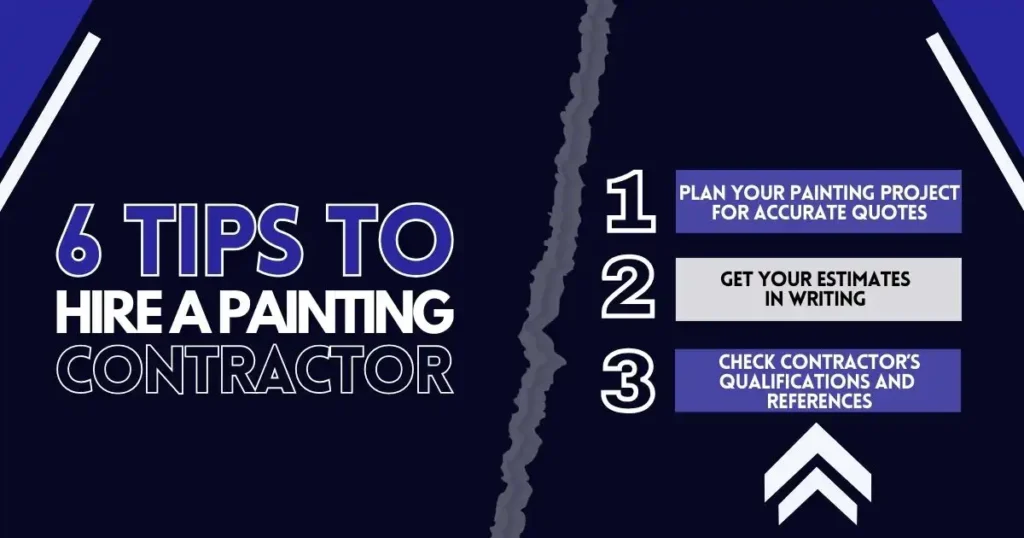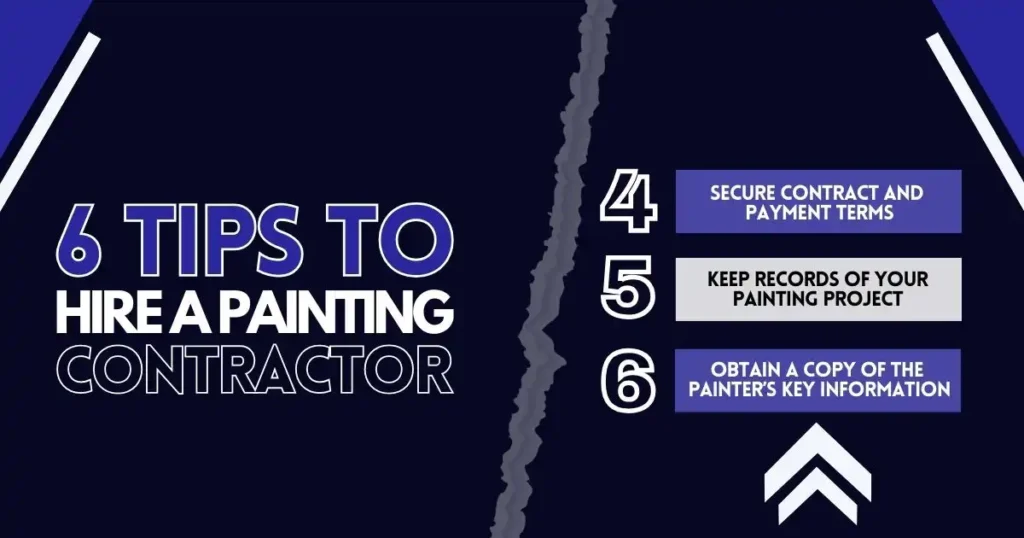Painting can be a messy, time-consuming task, but when you hire a painting contractor, you get top-notch results without the hassle. From preparation to the final coat, they do it all.
Hiring a painting contractor means you can relax and let the experts handle the hard work. They’ll deliver precise, clean lines and an even finish. But before you make that call, it’s essential to know what to expect from a professional painter. Keep reading to learn how to hire the best for your project.
What is a Painting Contractor?
A painting contractor is a professional who specializes in applying paint, coatings, and finishes to buildings, walls, and other surfaces. These contractors have the expertise to handle both interior and exterior painting projects, ensuring high-quality results. They also provide services like surface preparation, priming, and clean-up, ensuring a smooth and lasting finish.
Painting contractors typically have years of experience and can work on residential, commercial, and industrial projects. They use professional-grade tools and materials to achieve the best results. For decorative or protective purposes, hiring a painting contractor ensures your surfaces are treated with care and expertise, resulting in a high-quality and durable finish.
6 Tips to Hire a Painting Contractor
Hiring painters who are skilled and reliable can completely transform your space. Knowing what to look for helps ensure a smooth, hassle-free experience and a beautiful, long-lasting result that enhances your home or office.

1. Plan Your Painting Project for Accurate Quotes
Choosing the right interior painting contractor can transform your space with stunning, professional results. With the right expertise, you’ll avoid costly mistakes and achieve a flawless finish. Ensuring the job is done right the first time brings lasting value and beauty to your home or office, creating a remarkable transformation.
Before hiring a painter, gather quotes from at least three professionals. Discuss your project with each, ensuring you understand their pricing breakdown. Costs can vary significantly—painting a bedroom might cost around $500, while painting an entire house can average $3,000, which makes it important to set clear expectations for your budget.
- Square footage: The size of your project affects the cost. Painting an accent wall is much cheaper than painting an entire home, so plan accordingly based on the area’s square footage.
- Type of project: Determine if you need small touch-ups or a complete color change. Consider all surfaces to be painted, from trim to full walls, to get an accurate estimate.
- Quality of paint: Choose between high-end or standard paints before hiring a painter. While cheaper options may save money initially, low-quality paint could lead to more costs over time.
- Interior vs. exterior painting: Decide if you’re updating your home’s interior or exterior. Different services require different preparations, so clarify your needs before contacting a professional for accurate pricing and planning.
2. Get Your Estimates in Writing
Always request a written estimate and contract to establish a clear budget and avoid unexpected costs. Never work with a contractor who hesitates to provide a written agreement. Gather at least three estimates, ensuring each breaks down the pricing for materials, labor, and paint. This approach helps you compare and choose the best value.
Beyond comparing overall quotes, consider factors such as the painter’s labor rate, experience, and projected timeline. Ask for details about the type and brand of paint they’ll use, the number of coats required, and if there are additional costs. These key details ensure you’re making an informed decision and securing a fair, transparent deal.
3. Check Contractor’s Qualifications and References
It’s important to verify a contractor’s qualifications and references before hiring. A reliable way to assess their skills is through speaking with previous clients. If possible, visit their past projects to see their work firsthand. Alternatively, ask for recommendations from references or read online reviews to gauge their reputation and quality.
Always ensure the painter you hire is properly insured and licensed, especially if local regulations require it. Insurance protects you from potential liability, while a valid license ensures they meet industry standards. If visiting past projects isn’t feasible, online reviews can provide valuable insights into the painter’s reliability and craftsmanship.

4. Secure Contract and Payment Terms
A signed contract is essential to clearly outline expectations and hold the painter accountable for the agreed-upon work. It serves as a safeguard, helping to resolve any disputes that may arise. A well-detailed painting contract should include all necessary information to protect both parties and ensure the project runs smoothly.
- The total cost of the project
- A line-by-line breakdown of labor and material costs
- Material details, including brand, color, finish, and quantity
- The down payment amount
- The payment structure
- The final payoff terms
- An estimated timeline for the project’s completion
- Information about labor warranties, if applicable
5. Keep Records of Your Painting Project
As your painter gets to work, keep tabs on key details like hours worked, daily progress, and if they’re sticking to the timeline. Monitoring these elements helps keep your project on course. Accurate records can serve as leverage if adjustments are needed and show you’re invested in quality results.
Fresh interior paint can instantly enhance your home’s appeal and value, but don’t stop there—keep all job records, including warranties. Organized documentation adds credibility and gives future buyers confidence in the home’s upkeep. A beautifully painted interior backed with proof of workmanship is a powerful selling point that pays off.
6. Obtain a Copy of the Painter’s Key Information
Before kicking off your painting project, it’s wise to gather some essential details about the painter you’re considering. To start, collect the basics—full name, business address, and phone number. Then, take it a step further and ask about their license (if your state requires it). Altogether, these early efforts lay the groundwork for a smoother, stress-free experience.
Additionally, be sure to request proof of liability insurance and worker’s compensation coverage. These documents offer protection if there’s property damage or an injury during the job. Fortunately, reputable painters won’t hesitate to provide them. With this information in hand, you’ll gain peace of mind and help prevent any costly surprises once the work is underway.
Let Experts Handle the Details
The difference between average and amazing often comes down to who you hire. A true professional brings skill, care, and attention to detail. If you want clean lines, smooth finishes, and a stress-free process, it all starts with hiring wisely. Don’t leave your walls to chance—choose someone who’ll do it right.
Don’t settle for sloppy lines or surprise costs—choose experience that shows. Vegas Plumbing Pros offers more than plumbing—we connect you with trusted painting contractors who deliver flawless results. From walls to water heaters, we’ve got you covered. Ready for a cleaner, smoother finish? Contact us today to get started with confidence.
FAQS
Should I clean the walls before the painters come?
Cleaning the walls beforehand is key to achieving a smooth, lasting paint finish—and doing it yourself can reduce overall costs. An experienced interior paint contractor will also stress the importance of this step. Use warm water with mild detergent and a soft cloth to gently wipe surfaces.
Is it cheaper to hire a painter or do it yourself?
Doing the painting yourself is usually cheaper since you avoid labor costs, which make up most of a professional’s fee. Still, skill matters. Pros bring experience, proper tools, and speed, often delivering cleaner, longer-lasting results. While it costs more, hiring a professional can save time and provide a polished finish that’s worth the investment.
Do professional painters prep walls?
Professional painters usually prep walls to ensure a smooth, durable finish. This can include scraping old paint, filling holes, sanding, cleaning, priming, taping trim, and removing outlet covers. Before hiring, ask about their prep process to confirm it meets your standards. Clear expectations upfront help ensure you’re satisfied with the final result.
What do most painters charge per hour?
Rates typically range from $20 to $50 per hour, $3 to $6 per square foot, or $200 to $500 per day. For example, painting a standard 10-by-12-foot bedroom averages $391 for the walls alone. A full job—including ceiling, baseboards, and trim—can cost up to $815, depending on detail and finish quality.



